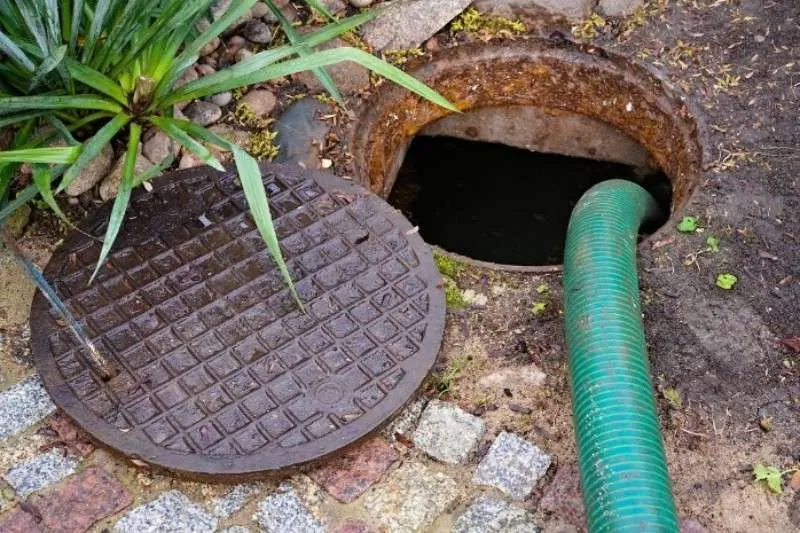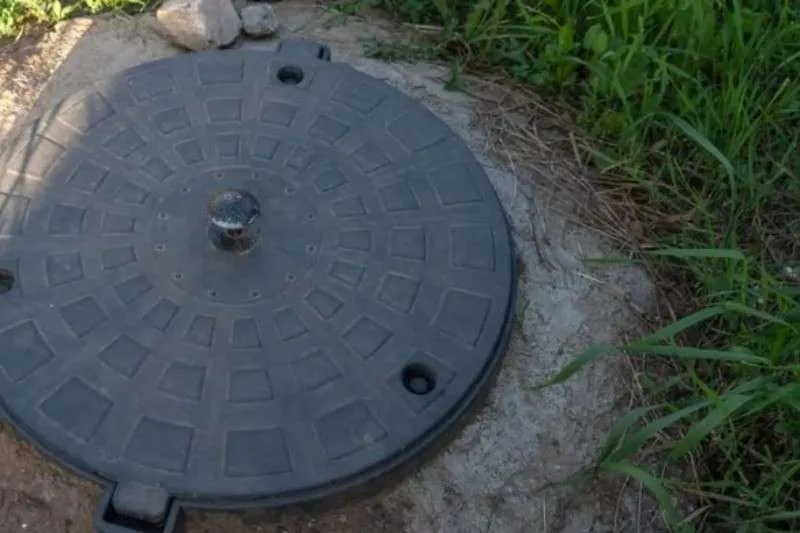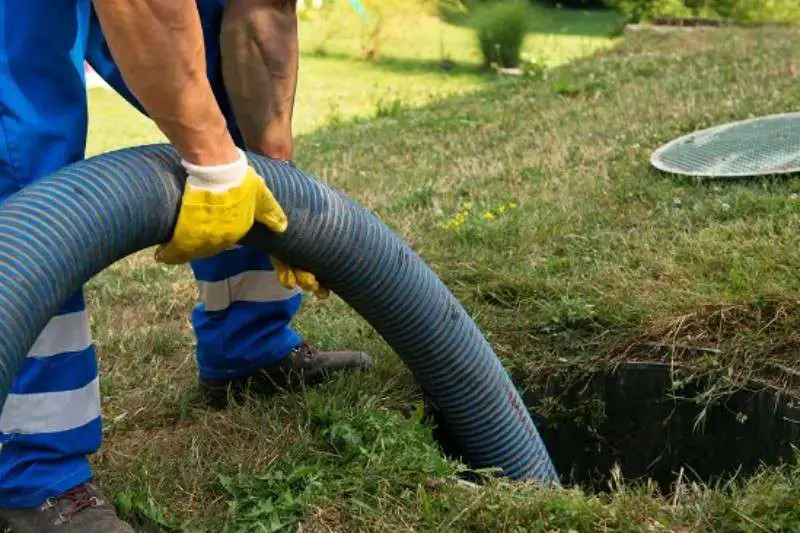Are you a septic system owner wondering what exactly you should and shouldn’t flush down your toilet? You’re not alone! With the sheer number of items designed for single-use convenience in drains and toilets, it can be hard to keep up with which products are safe for your plumbing.
But have no fear—this guide provides the answers to help ensure that your septic system and the pump are properly maintained and functioning at their best. Get ready to ensure you know what to pump and what you do not need to pump, and flush to avoid costly repairs in the future.
Introduction to proper waste disposal for septic system owners
As a septic system owner, it is important to be mindful of what goes down the drain and how this can impact your septic system and the drain’s health. Wastes that are non-biodegradable or contain chemicals can threaten the tank’s integrity, draining field, and other system components. This guide explains what not to flush to maintain the tank’s health that fills your septic system roof drains.
By being mindful and careful of what goes down the drain, you can prevent the build-up of bacteria and blockages in your septic system that could lead to costly repairs. In addition, improper waste disposal can lead to health hazards and environmental pollution. Therefore, all septic system owners must understand what not to flush and why.
Common items that should not be flushed or drained into a septic system
Septic systems are an important part of managing wastewater for many households, and it’s critical that homeowners understand what should and should not go into their sewage system. To maintain a healthy septic system, only biodegradable materials such as toilet paper and human waste must be flushed or drained into the system. Non-biodegradable materials, such as chemicals such as plastics, and wipes, should never be flushed or drained into a septic system.
Medications and personal care products should also be disposed of properly to protect your septic system. As a septic system owner, it’s important to be aware of the items that should not be flushed or drained into your septic system works and to ensure that you properly dispose of all materials. Doing so will help protect your septic system and avoid costly repairs in the future.
The impact of non-septic-safe items on septic system functionality

Septic systems are designed to handle waste in our homes and businesses. But when we flush items down the toilet or pour them down the drain that is not septic-safe, it can cause various problems. Clogs, backups, and other issues can arise from improper or hazardous waste or garbage disposal. The impact of these non-septic-safe items on septic system functionality can be costly, resulting in repairs or even the need for systems to be replaced.
Knowing what not to flush is important for septic system tank owners. This guide provides information on what should and shouldn’t be put into your septic system tank to keep your system functioning properly and avoid costly repairs and tank fills.
First and foremost, it’s important to note that toilet paper is the only product safe to flush in a septic system. Any other item should be disposed of in another manner. Common items that cannot be flushed in a septic system include:
- Feminine hygiene products
- Paper towels
- Baby wipes
- Cotton swabs
- Starchy foods, such as rice and pasta
- Grease/oil/fat
- Coffee grounds.
These items can cause a buildup, leading to backups of groundwater or clogs in pipes in your house or septic system. Additionally, small items like bottle caps, plastic wrappers, or cigarette butts should not be flushed as they can cause damage to the pipes, drain, or septic system.
Suppose you’re unsure what is and isn’t safe to flush in your septic system. Contact a local septic maintenance expert with questions or concerns about your septic system maintenance beforehand. Taking proper care and regular maintenance of your septic system is essential for keeping it functioning and avoiding costly repairs in the future.
Tips for responsible waste disposal in a septic system household
Having your septic tank and drain field system is an investment that requires responsible waste management practices to protect the integrity of your septic tank and plumbing. What Not to Flush: A Guide for Septic System Owners provides tips and guidance on maintaining a healthy septic tank, drain field, and system in your home.
Establishing and enforcing household rules for waste and garbage disposal is important. Start by designating a specific area in your home to dispose of all types of waste, including solids, liquids, and hazardous materials. Teach everyone in the family about proper garbage disposal and methods for common household items such as paper products, food scraps, and chemicals.
For example, paper products like facial tissues, paper towels, and napkins should be disposed of in the trash can. Food scraps, especially those with high water content and organic matter like fruit or vegetable peels, should be composted if possible. Food waste should be thrown directly into the trash can or bin if a home lacks an outdoor composter.
Chemicals such as paints, motor oil, and batteries should be taken to a hazardous waste facility. This will help prevent septic systems and groundwater contamination, which can cause expensive damage down the line. Removing chemicals from drains, toilets, and other plumbing pipes and fixtures is also important for washing machines and toilets.
Educating family members and guests about septic system care
Maintaining the health of a septic system is an important responsibility for every homeowner. What Not to Flush: A Guide for Septic System Owners outlines the proper items that should not be flushed down the drain, thereby avoiding potentially costly repairs or replacements of the septic system.
Educating family members and guests about septic system care is one of the key components of avoiding issues. Teaching children and other household members about proper waste disposal and guiding guests on the septic system do’s and don’ts will go a long way in preserving the system.
It is important to remember that all materials intended for disposal should be deposited into the trash, not down the toilet or drain. Flushing materials down drains, such as hygiene wipes, dental floss, razors, and feminine products, can cause plumbing clogs that are difficult to repair and may require professional help.
In addition to avoiding items like hygiene products, it is important to avoid pouring any liquids with corrosive properties into the septic system, such as paint, gasoline, great,e, grease or oil. These liquids can damage the delicate balance of bacteria within the septic system, leading to backups and poor-functioning sump pumps.
Lastly, avoid putting organic material like coffee grounds, egg shells, tea bags, or grease into the toilet or septic system as they cause clogs. All these clog-up items should be placed in the trash for disposal.
Homeowners can protect their septic tanks and avoid costly repairs or replacements by following the tips in What Not to Flush: A Guide for Septic System Owners. Everyone can enjoy the benefits of a properly functioning septic system with some education and care.
Choosing septic-safe products and alternatives

Maintaining a septic or sewage system requires carefully considering what can and cannot be flushed down the toilet. Certain items should never be flushed regarding septic systems or sewage, as they can cause damage or clogs in your toilets or pipes. Understanding what not to flush will help keep your septic or sewage system running smoothly for many years.
When choosing septic-safe products and alternatives, many options won’t harm your septic system or the environment. Recommended septic-safe cleaning products, toilet paper, and personal care items include environmentally friendly detergents, soaps, and cleaners designed specifically for septic systems plant trees.
When maintaining a septic system, selecting environmentally friendly alternatives to common household products is also important. Some items to avoid include oil, paint, and pesticides, which can contaminate the soil surrounding your septic system and harm the environment. It’s also important to avoid flushing any trash down the toilet; this includes Kleenex, disposable diapers, paper towels, and cotton balls sludge layer.
Using only septic tank-safe products and avoiding those that can harm your septic tank and system is important for the longevity and health of your septic tank and system. With proper maintenance and consideration of what not to flush, you can ensure your septic tank and system operates optimally for years.
FAQs
What items should not be flushed or drained into a septic system?
Items such as hygiene wipes, dental floss, razors, feminine products, drain cleaners, paint, gasoline, and oil should not be flushed or drained into liquid in a septic or liquid system. Additionally, organic materials like coffee grounds and eggshells should not be put into liquid or septic systems as they can cause clogs.
Why is it important to avoid flushing certain items in a septic system?
Flushing certain items can cause plumbing clogs that are difficult to repair and may require professional help. Additionally, liquids with corrosive properties, such as paint, gasoline, grease, or oil, can damage the delicate balance of bacteria within the septic system and lead to backups and poor functioning. These materials should always be deposited in the trash for proper disposal.
What are the consequences of flushing non-septic-safe items?
The consequences of flushing non-septic-safe items are costly repairs or replacements due to plumbing clogs, damage to the delicate balance of bacteria within the drain field trenches and septic system, and contamination of the soil surrounding the septic tank and the drain field trenches field and system.
How can I prevent clogs and other septic system issues caused by improper waste disposal?
To prevent clogs, leaks, and other septic system issues, it’s important to use septic-safe products and alternatives. It’s also important not to put organic material like coffee grounds, soil,l, soil or eggshells in the septic systems. These can cause clogs. Finally, always deposit trash in the garbage for proper disposal.
How can I teach my family about proper waste disposal in a household with a septic system?
The best way to teach your family about proper waste disposal in a household with a septic system is to explain the importance of using septic-safe products and alternatives and avoiding items that can harm the system.
Are there septic-safe alternatives to common household products?
There are septic-safe alternatives to common household products, such as detergents, soaps, and cleaners designed specifically for septic systems. Furthermore, environmentally friendly alternatives can replace items like paint, oil, and pesticides that can contaminate the soil surface water surrounding your septic system.
Can I use a garbage disposal with my septic system?
Usually, using a garbage disposal with your septic pump and tank is not recommended. Using a garbage disposal can cause plumbing clogs and strain the septic pump and tank system, potentially leading to poor functioning.
How can I ensure my guests follow proper waste disposal guidelines?
To ensure your guests follow proper waste disposal guidelines, you should provide clear instructions and information on what items can and cannot be flushed down the toilet. Labeling any bathroom with a “Septic System” sign that outlines the items that should not be flushed is also a good idea.
Conclusion
The key takeaway from this piece is that there are certain items you’ll want to avoid flushing down your plumbing system as a septic system owner. Proper maintenance greatly impacts your system’s overall performance and longevity, so it pays to err on the side of caution and avoid disposing of items such as feminine hygiene products, condoms, flushable wipes, and paper towels and napkins. Always contact a professional if you experience any signs of issues with your septic system maintenance to prevent any costly repairs in the future.


